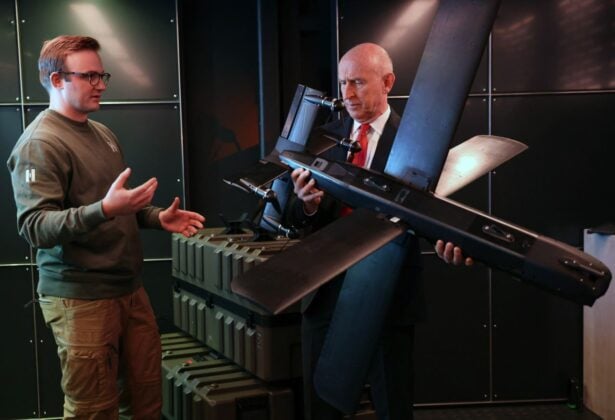
The UK government has announced the next phase of its plan to establish new munitions and energetics factories across the country, identifying at least 13 potential sites as part of a major effort to increase warfighting readiness and rebuild an industrial base that largely disappeared nearly two decades ago.
According to the government’s announcement, “the UK’s warfighting readiness and firepower [is] boosted as at least 13 potential sites now identified for new munitions and energetics factories, with construction expected to begin on the first in the next year.” The Ministry of Defence said the program will create at least 1,000 new jobs as production of energetics — including propellants, explosives, and pyrotechnics — returns to the UK.
In a speech delivered in Westminster, Defence Secretary John Healey said the government is committed to “building the factories of the future in Britain,” adding that two new drone factories will also open this week. The speech detailed upcoming industry invitations to submit proposals for the new energetics network, an expansion intended to supply the Armed Forces and sustain continued support to Ukraine.
The Defence Secretary confirmed that the Ministry of Defence has funded multiple feasibility studies to shape these factories, noting that engineering design work for the first site has already begun. The goal is to restart high-volume energetics production “at scale for the first time in nearly two decades.” Potential factory locations include Grangemouth in Scotland, Teesside in Northeast England, and Milford Haven in Wales, alongside other regions across the UK.
The new factories will produce components essential for expanding the UK’s weapons inventory. In the government’s words, these facilities will support the Strategic Defence Review’s transition “to warfighting readiness” and address the need “to boost the UK’s firepower for the Armed Forces.” The factories are also expected to strengthen industrial resilience and reduce dependence on foreign suppliers for critical materials.
Speaking about long-term investment, the Defence Secretary said the choices made in the upcoming Budget will determine whether the UK avoids returning to “the hollowed out and underfunded Armed Forces of the past.” He argued that the government’s record increase in defense spending is necessary to protect the country from “a new era of threat,” adding that this investment delivers economic returns “measured in good jobs, growing businesses, new skills across the UK.”
Healey said: “This is a new era of threat, but the opportunity of this new era is a defence dividend from our record investment, measured in good jobs, thriving businesses, new skills for the British people.
The Strategic Defence Review published in June allocated £1.5 billion ($1.96 billion) in additional investment for energetics and munitions, including an “always on munitions pipeline.” The government committed to building at least six new munitions and energetics factories during this parliamentary term.
The Ministry of Defence will publish detailed requirements for the program in a Planned Procurement Note, outlining multi-year funding aimed at supporting domestic production and stimulating industrial growth. The document will identify nine energetic materials deemed essential for national defense.
Healey also announced the opening of two new drone factories this week — Helsing’s new “resilience factory” in Plymouth, and STARK’s production line in Swindon — marking further expansion of advanced systems manufacturing. These investments are backed by a £250 million ($326 million) defense growth deal.
The government noted that the war in Ukraine demonstrates the need for rapid industrial resupply and continuous innovation between front-line forces and industry partners. The SDR established an £11 billion ($14 billion) annual “Invest” budget under the National Armaments Director to support equipment procurement and expand the UK’s defense industrial base.
Today, the UK defense sector supports more than 460,000 jobs, including over 24,000 Ministry of Defence apprenticeships. Last year, the MOD spent £31.7 billion ($41 billion) with UK-based companies, with 70% of defense jobs located outside London and Southeast England.